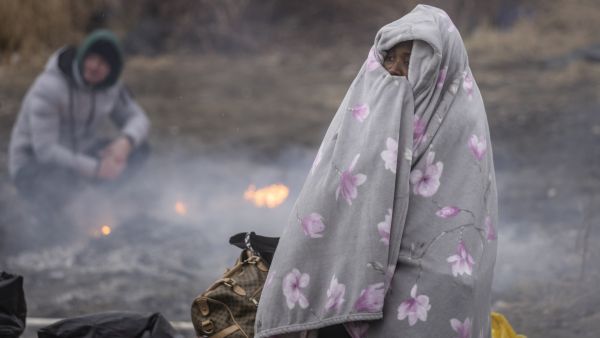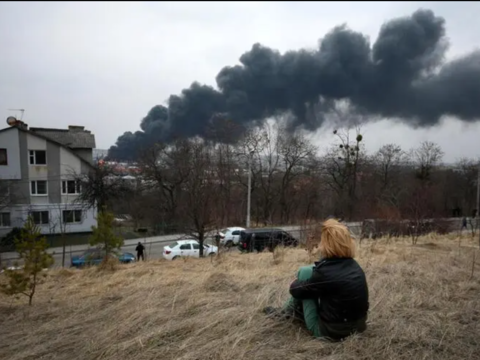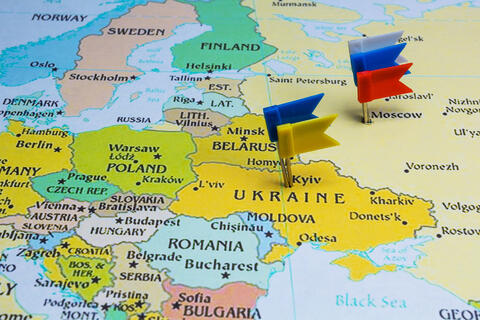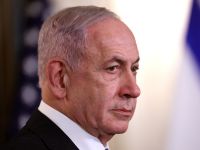By Farzad Ramezani Bonesh
Russia's invasion of Ukraine will have short-term, medium-term and long-term effects in several key areas in the Middle East. These effects are Geopolitical, political, military, economic and social effects.
Geopolitical and political implications
The Ukraine crisis will have both short-term and long-term effects on the response of regional governments to international consensus on relations with Russia and Ukraine. Disorders caused by international sanctions against Russia can affect the political and security interests of countries in the Middle East. For example, the possibility of the Black Sea coastline encloses control by Russia, encircles Ukraine on land and largely prevents its further contact with actors in the region, such as Turkey.
The involvement of Middle Eastern actors in sanctioning Russia, verbal and diplomatic support for the UN General Assembly resolution (condemning Russia's aggression), suspension of Russia from the Human Rights Council, efforts for dialogue and peaceful negotiations between the two main parties, and etc., will effect the future of Middle East relations with Russia and Ukraine.
Therefore, the opportunity for countries to decide on geopolitical revision, strengthening global alliances, the possibility of playing a mediating role (such as Qatar's initial attempt with Ukrainian and Russian officials and then Turkey) in the crisis still exists. The Ukraine war looks set to change power relations and alliances in the Middle East and beyond. Although it is too early to talk about a completely changed geopolitical situation, the crisis in Ukraine has a significant impact on geopolitical choices in the region.
The crisis in Ukraine and the type of sanctions imposed by Russia will have a significant impact on the attitudes of various Asian actors towards strategic waterways in the Middle East.
The war in Ukraine will affect geopolitics and power relations and alliances in the Middle East. Although many countries have historically had deep ties with the West, they also have important ties with Russia. The type of crisis management in Ukraine affects the JCPOA and the type of returning to the Iran nuclear deal. Israel may be concerned about growing Russian-Iranian cooperation, and smaller actors such as the Syrian Kurds are concerned about the impact of the Ukraine crisis to their detriment.
In fact, the Middle East has played a vital role in Russian politics. The shortening or prolongation of the Ukraine crisis will affect the way Russia acts in the region, for example, in the coordination of Russia and Turkey in Libya, northern Syria and the eastern Mediterranean. In international diplomacy, the prolongation of the Ukraine crisis will affect the way countries maneuver in US-Russian relations in the region. There is always their turning to Russia.
Many Middle Eastern actors have condemned the Russian aggression at the UN General Assembly; but they have not followed the West in imposing sanctions. The response of some countries stems from growing frustration with the US role in the region. In addition, the growing disagreement of some allied actors with the United States has sometimes led to rare public criticism of Washington; for example, Washington’s criticism over Assad's trip to Abu Dhabi, or, Russia's vote on the UAE's proposed resolution on Yemen was a new kind of Moscow’s action in Yemen.
In the military dimension, the Ukraine crisis and the type of its various consequences, has a significant impact on the scope of cooperation and military convergence of countries in the region with important alliances such as NATO and major players, especially Russia. Long-term sanctions against Russia may be challenging in the Middle East, as some countries have recently diversified their imports or defense cooperation or sought further cooperation with Russia, because of Russia's position as one of the world's arms exporters.
In recent years, Egypt has established close ties with Russia in the field of armaments, including the construction of an Egyptian nuclear power plant. The outcome of the Ukraine crisis has also had an impact on the export, defense, and arms programs of some actors, such as Turkey, to expand its engagement with Ukraine in the defense industry.
UN Secretary-General Antonio Guterres has warned that the Ukraine crisis could sow the seeds of political instability and unrest around the world. In fact, the outcome of the war in Ukraine could lead to a wave of political unrest and instability, the return of Arab uprisings within the next 10 years, and even the strengthening of extremist groups in the Middle East.
The Ukraine crisis could also affect the internal affairs of the Middle East countries such as the Turkish and Lebanese elections, and the political and military groupings within the Middle East countries, such as the rivalry between the two claimants to power in Libya. The Ukraine crisis could also have a significant impact on the ceasefire in Idlib, Russia's possible withdrawal from Syria, the presence of Syrian fighters in Ukraine, the manner of cooperation or confrontation of Turkey and Russia in Syria to control Syrian Kurds.
Economic and social effects
The economic impact of the Ukraine crisis in the Middle East varies from negative impact to economic benefits in various economic dimensions. The Ukraine crisis seems to have a significant impact on regional energy policy and the type of Middle East oil and gas cooperation with Russia and Western and Eastern actors.
Regional oil and gas exporters (eg Iraq, Qatar and Saudi Arabia) will benefit from higher export earnings in the short term and even in the medium term. In the case of targeting Russian exports by the West, gaining the Russian market share, will create opportunities for countries like Qatar to increase exports and sign long-term contracts.
In fact, Europe is likely to seek alternative gas resources and become independent from Russian resources, so the Middle East can help Europe reduce its dependence on Russia. In contrast, energy and oil-importing countries in the region will suffer, and high prices will pose economic risks. The energy shock poses challenges for rich countries seeking to change their dependence on oil and gas resources, as well as for those economies that rely on energy imports.
On the other hand, according to the World Bank's forecast of rising inflation in oil-rich and oil-importing countries in 2022, the economic effects of the Ukraine crisis in the Middle East will actually prevent the region's economies from returning to pre-Coronavirus era levels or to face other challenges. Widespread global attention to the Ukraine crisis is likely to lead to less interest in the UN humanitarian request for countries in the region. In March 2022, it collected only $1.3 billion out of the expected $4.27 billion.
The Black Sea region exports at least 12 percent of the world's traded food calories. Ukraine and Russia account for a quarter of the world's traded wheat. In contrast, the MENA region supplies an average of 80 percent of local demand for wheat through imports, much of which comes from Russia and Ukraine.
In addition, Russia is one of the largest exporters of the three main fertilizers: Nitrogen, Phosphorus and Potassium in the world
Disruption of this, along with global energy prices, has a significant impact on food prices in the Middle East.
Rising global food prices last year by more than 30% compared to year before that, disruption of Ukraine's wheat production and export chain, Russian sanctions, risk of declining global wheat exports, domestic policies of some food exporters (such as Ukraine) to reduce exports and ... has and will have various negative effects on Middle Eastern countries.
The war in Ukraine has led some Middle Eastern governments to put food independence and increased domestic production at the top of their policies, at least in the short term. The Ukraine crisis may also have affected the possible elimination of food subsidies, reducing food exports, food rationing, more investment in local agricultural products, increasing storage capacity, diversification of food suppliers, and etc., in the Middle East.
The big number of people in need of humanitarian assistance in some of the weaker countries in the region, such as Yemen (14.4 million people with food insecurity), is while, the World Food Program's meager resources will be under increasing pressure.
The growing number of Ukrainian refugees equals a massive reduction or closure of vital support for millions of children in need in the Middle East. For example, the UN Donors' Conference for Yemen achieved only a third of its goal in mid-March.
On the other hand, countries whose economies rely on tourism with Russian or Ukrainian citizens will suffer severely. Some countries, given the effects of the Ukraine crisis, will experience more pressure on low-income groups and wider inflation, or will likely receive funds from wealthy Arab countries.










